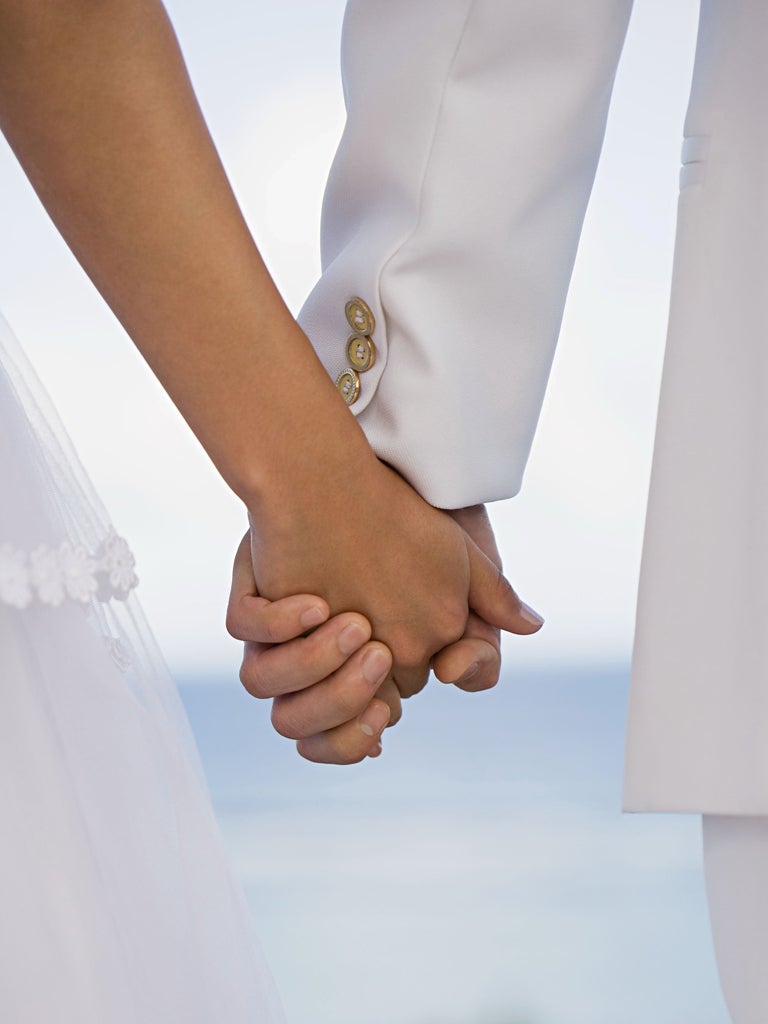David Randall: My surprise encounter in a city far away
Our writer meets a remarkable bride whose big day might be among her last

Your support helps us to tell the story
From reproductive rights to climate change to Big Tech, The Independent is on the ground when the story is developing. Whether it's investigating the financials of Elon Musk's pro-Trump PAC or producing our latest documentary, 'The A Word', which shines a light on the American women fighting for reproductive rights, we know how important it is to parse out the facts from the messaging.
At such a critical moment in US history, we need reporters on the ground. Your donation allows us to keep sending journalists to speak to both sides of the story.
The Independent is trusted by Americans across the entire political spectrum. And unlike many other quality news outlets, we choose not to lock Americans out of our reporting and analysis with paywalls. We believe quality journalism should be available to everyone, paid for by those who can afford it.
Your support makes all the difference.Two of my sons get married next year, and, when they do, no doubt the air will be thick with unsolicited advice about the years ahead. Understandable, I suppose. After all, marrying is something you do for the sake of the future, and certainly seems to be what my prospective daughters-in-law are about.
I met another kind of bride last week. Visiting a provincial city which had better remain anonymous, I checked in to my hotel in the early evening and was walking through the lobby when one of the lift doors opened and out stepped a young bride who looked as if she had stepped from the pages of a children's picture book. Her hair trailed in long waves around her shoulders, and she wore a fancy wedding dress that had the flouncy wide shape of a ballgown. She momentarily stopped, and caught my eye. "Hello," I said, "having a good day?" "Oh yes," she said, and, with that, manoeuvred herself and her dress down the little steps.
I went to my room, changed for dinner, which was with an old friend, went down to wait for him, and fell into conversation with the hotel manager. As we talked, four young women in matching red sack dresses came clip-clopping in their heels past reception. They looked like a Beryl Cook painting come to life. The bride's supporters, I guessed. "You've got your hands full tonight," I said to the manager, "I didn't know you did weddings here." "Well," she replied, "it's a bit special."
This, it turned out, was no ordinary bride, full of thoughts about the years ahead. A patient at the city hospital's teenage cancer unit, she was not yet 20, and terminally ill. She might see her first wedding anniversary; she might not. Her boyfriend had proposed to her, and via the Teenage Cancer Trust's connections with the hotel's owner and manager, a wedding had been laid on. She would spend the night in a four-star bridal suite. There would, however, be no honeymoon. Her treatment, you understand.
My friend arrived, we went out to dinner, returned, had a nightcap, I saw him into his cab, and went back into the hotel. And then, as they had done before, the lift's doors opened. Out stepped a fragile-looking girl in pyjamas. Gone not only was the wedding dress, but also the long, brown, cascading tresses. In their place was a short, fair, new growth of hair. But I recognised her.
"You're the beautiful bride!" I said. "Yes," she smiled, and walked outside – maybe for a breath of fresh air, or possibly one last look at the world on her wedding day.
I toyed momentarily with the idea of following her and doing what, on other newspapers, would be considered my professional duty. But I didn't. The hotel manager had told me the bride wanted no publicity, and I figured her special day would not be improved by having some nosy stranger asking questions.
Two days later, however, I did ring the Teenage Cancer Trust, the charity supported by Roger Daltrey and others, who have provided, and help run, special units in 17 hospitals around the country, with another 15 planned. I called not because I wanted the bride to reconsider her anonymity, but because I wanted to check what I had been told about her. The prognosis is not good; but no immediate timescale is clear.
I don't know her name, but don't think I'll forget her, especially next summer when my sons marry. If, like them and their fiancées, you have futures which stretch out into the decades ahead, and are unclouded by serious illness, perhaps you'll remember her, too; and, at Christmas, make a donation to the Teenage Cancer Trust. If the look on that fragile bride's face is anything to go by, they will use it well.
Join our commenting forum
Join thought-provoking conversations, follow other Independent readers and see their replies
Comments